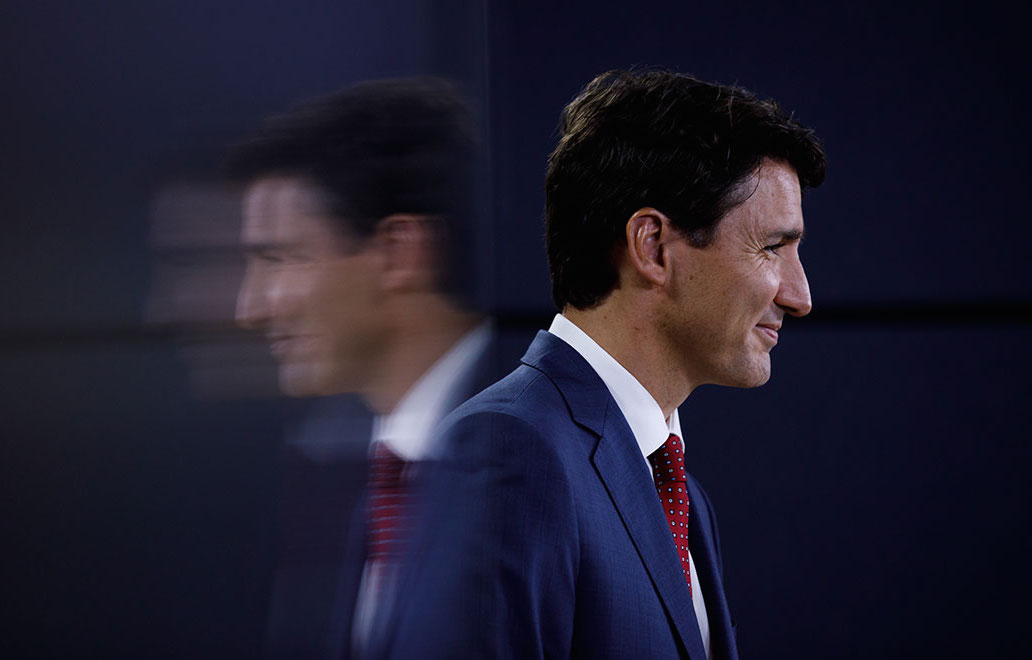Describing something as being in “the national interest” gives it a sense of gravitas, of over-arching public purpose.
So it always struck me as odd to hear Justin Trudeau say that building the Kinder Morgan pipeline was “in the national interest.”
How can something be in the national interest when it would significantly contribute to the destruction of the very planet that sustains us? Can something really serve our interest as a nation when it undermines our more basic interest as humans?
The prime minister doubled down last week, insisting that building the pipeline was so deeply in the national interest that his government would bail out Kinder Morgan with $4.5 billion of Canadian taxpayers’ money to insure it got built.
That’s just the cost of buying the leaky 65-year-old pipeline. When construction costs are added — enabling the pipeline to carry triple the volume and transport Alberta’s heavy crude — Canadians will be on the hook for at least $7.4 billion.
To grasp the sheer magnitude of this move, we might ask ourselves: of all the worthy causes we aspire to as a nation, how many would the prime minister be willing to put at risk $7.4 billion to achieve? None come to mind.
It’s disappointing that Trudeau has inappropriately used such an important tool as public ownership.
There are times when it’s utterly fitting for government to take over something that’s been abandoned or mishandled by the private sector — but it should be for a pressing public need, not something moving us closer to climate disaster.
In this case, the private sector got it right: building this pipeline isn’t viable. There’s too much opposition — from First Nations, the B.C. government, as well as countless citizens unlikely to be deterred by the razor wire Kinder Morgan strung across the harbour near its pipeline terminal.
What makes Trudeau’s pedal-to-the-floor approach particularly baffling is that the economic case for this bailout is so weak.
As energy economists Jeff Rubin and Robyn Allan have pointed out, the government’s claim that there’s a huge Asian market — where Alberta’s heavy crude will fetch a much higher price than in the U.S. — is largely wishful thinking.
This suggests Ottawa might not be able to sell the pipeline, as it plans, without taxpayers suffering a terrible loss.
“If [Ottawa] ever finds an investor to take the pipeline off its hands in the future,” notes Rubin, “it will be for far less than the taxpayer has paid for it.”
Even if the economics of the project worked, there would still be the devastating environmental impacts, including the potential sullying of B.C. coastal waters with oil that is exceptionally difficult, if not impossible, to clean up.
Then there’s the real party-killer: climate change. James Hansen, the renowned U.S. climatologist, describes Alberta’s heavy oil as “one of the dirtiest, most carbon-intensive fuels on the planet.” He says it would be “game over” for the climate if Alberta’s tarsands were fully exploited.
Under such a scenario, Canadians would be using almost 30 per cent of the world’s remaining carbon budget, although we represent just half of 1 per cent of the world’s population, notes U.S. environmentalist Bill McKibben.
Pipeline supporters generally avoid dealing with environmental impacts, but some, like business columnist Andrew Willis, argue that building Kinder Morgan is like putting a tax on cigarettes to raise money for health care.
“Cigarettes, in an odd way, can help the fight against cancer,” writes Willis. “Oil pipelines can help fund a longer-term battle against climate change.”
But there’s no time for a longer-term battle when the climate wolf is already breaking down our door.
Besides, putting a tax on cigarettes discourages cigarette use. The pipeline allows Alberta to triple its oil production. Here’s a better analogy: building the pipeline is like encouraging smokers to buy three times the cigarettes. Bad.
Of course, the smoker mostly hurts herself. The pipeline brings us all closer to the climate abyss.
Trudeau portrays himself as balancing oil interests and the environment. But when push came to shove, he chose the oil interests. In doing so, he’s put Canada on the wrong side of history.
Linda McQuaig is a journalist and author. Her book Shooting the Hippo: Death by Deficit and Other Canadian Mythswas among the books selected by the Literary Review of Canada as the “25 most influential Canadian books of the past 25 years.” A version of this column originally appeared in the Toronto Star.
Photo: Adam Scotti/PMO





